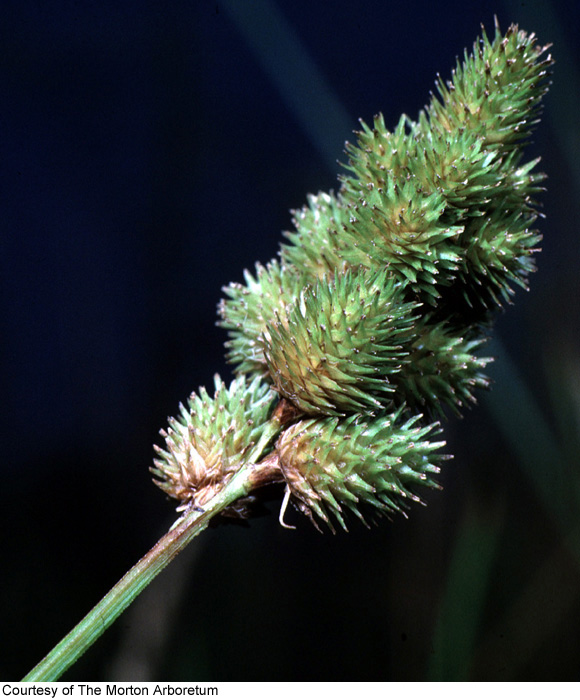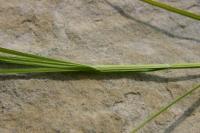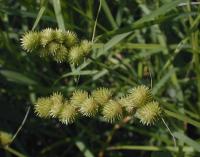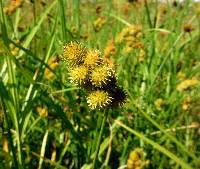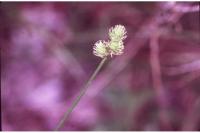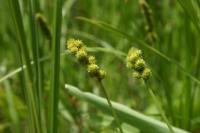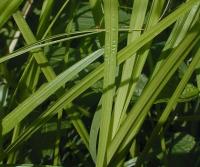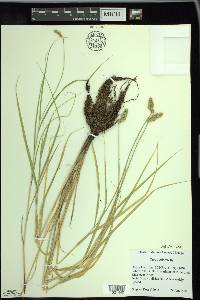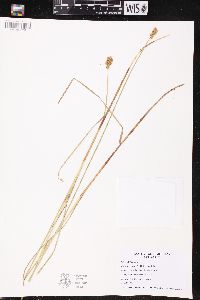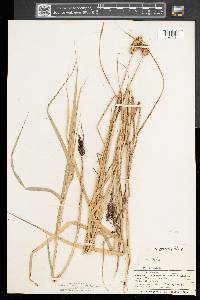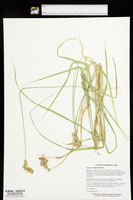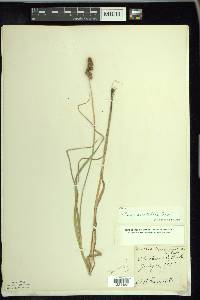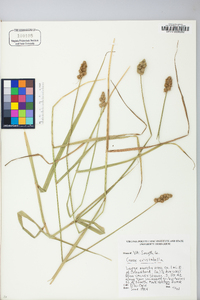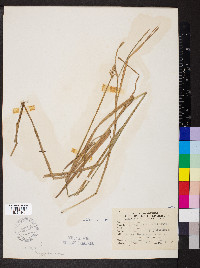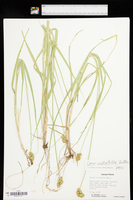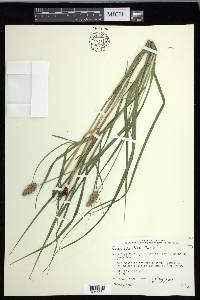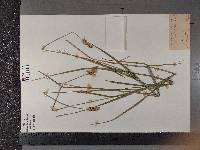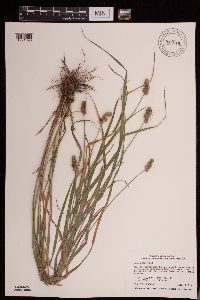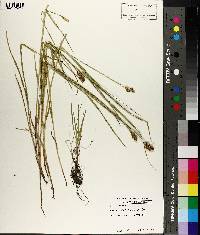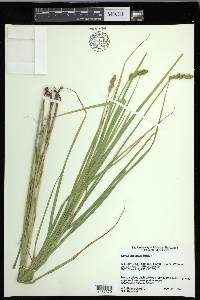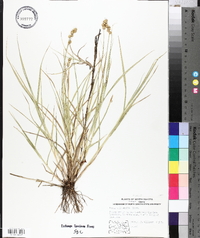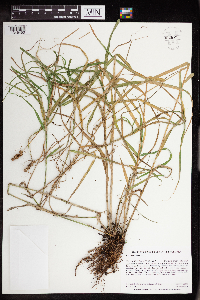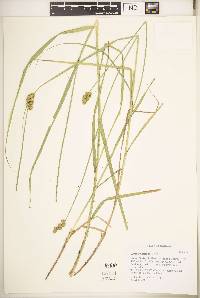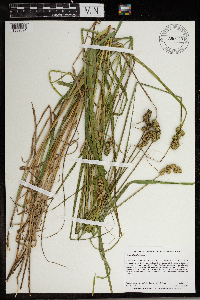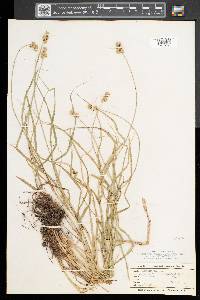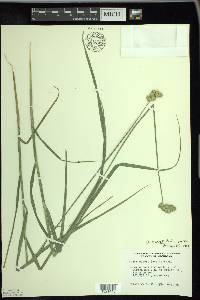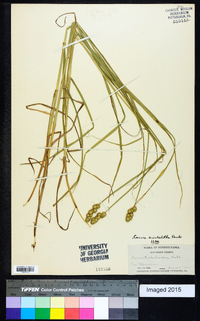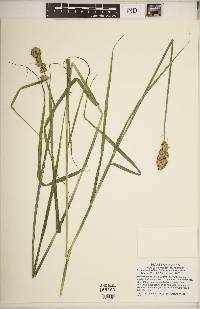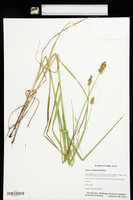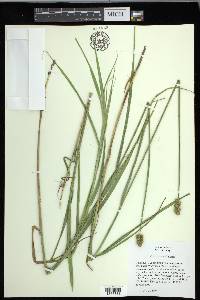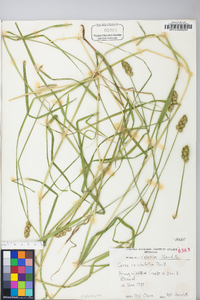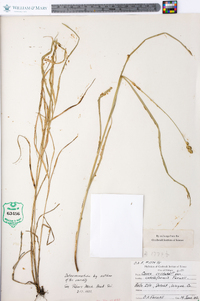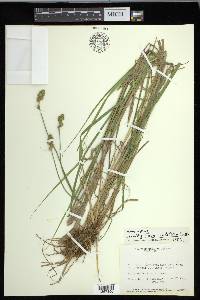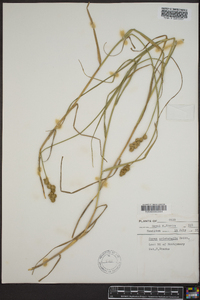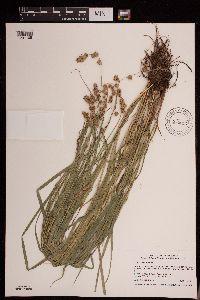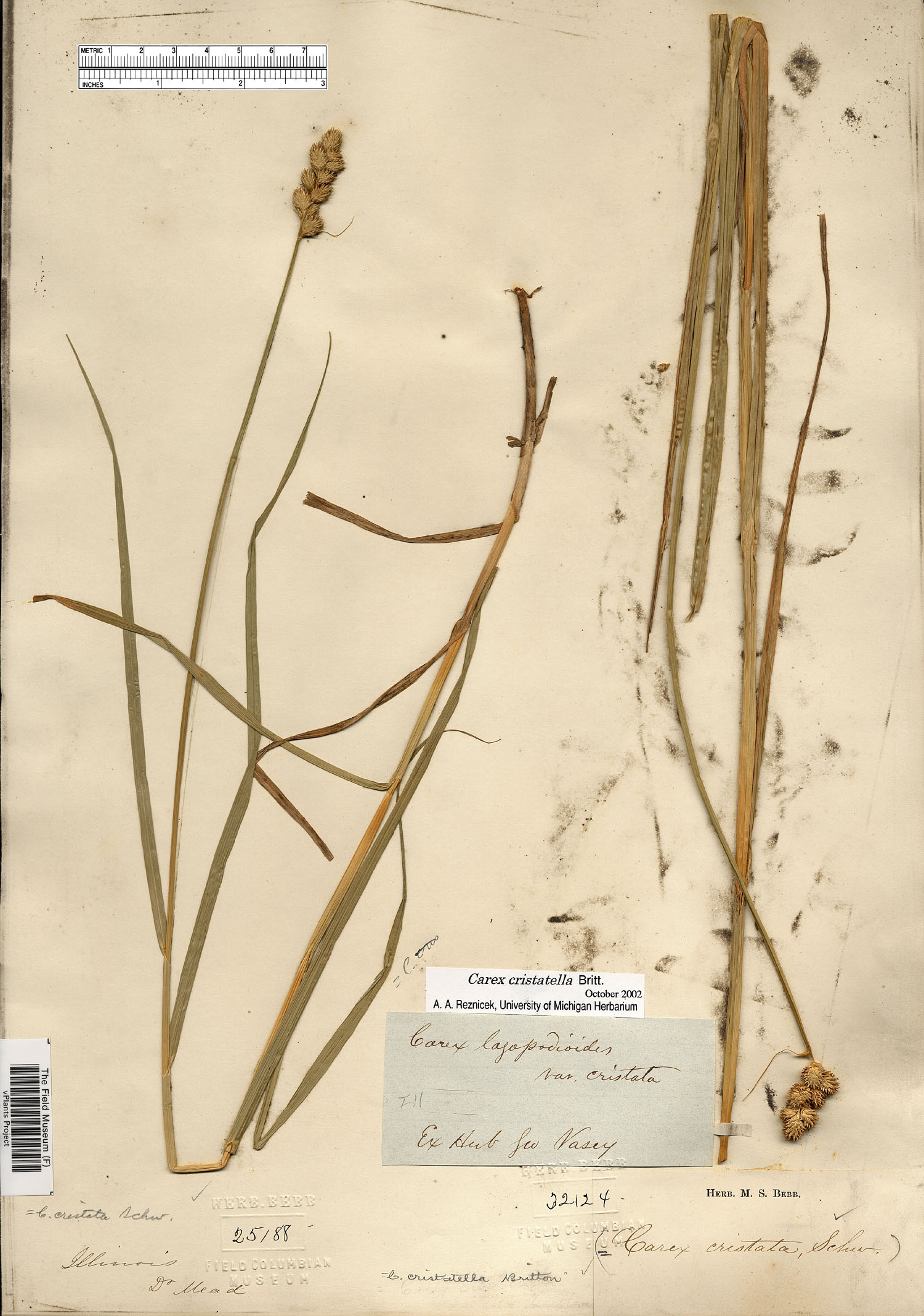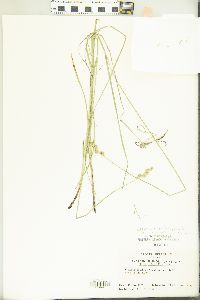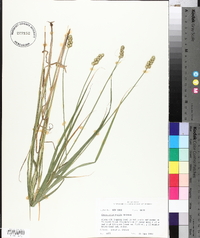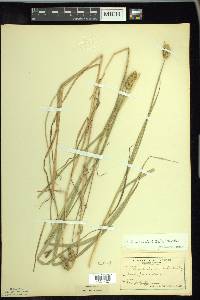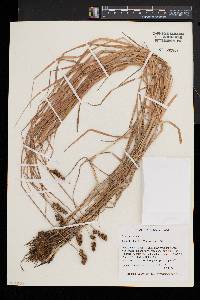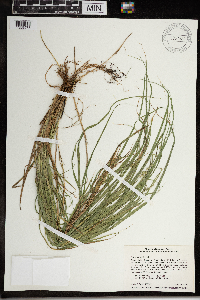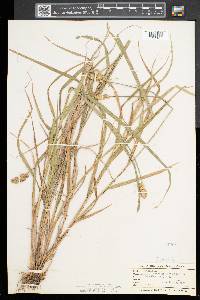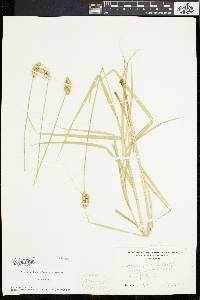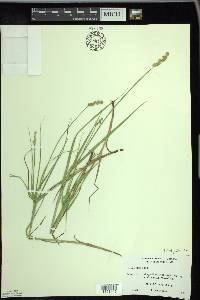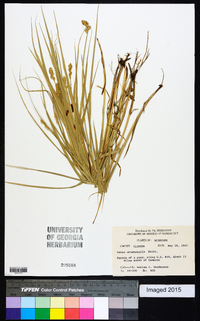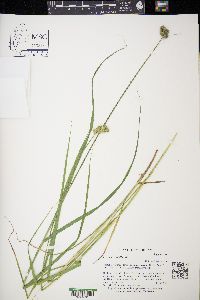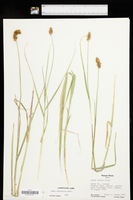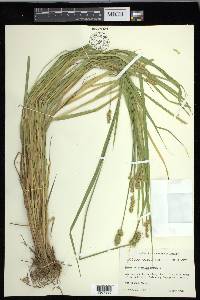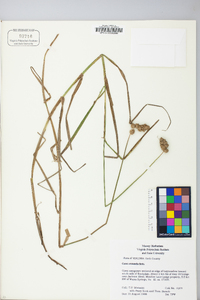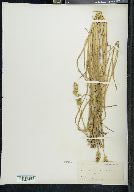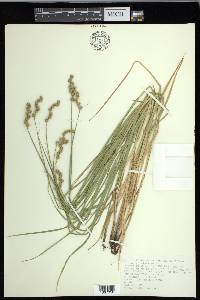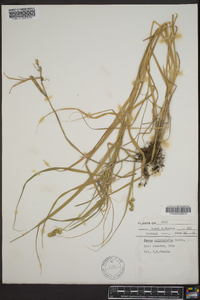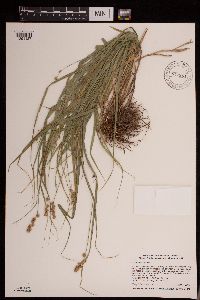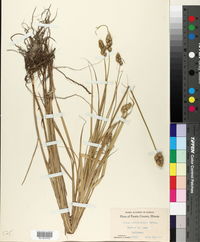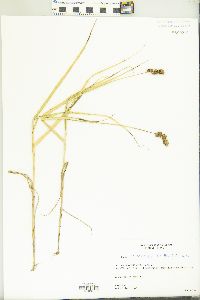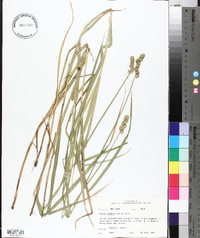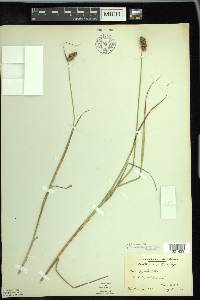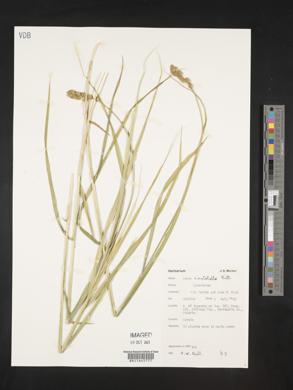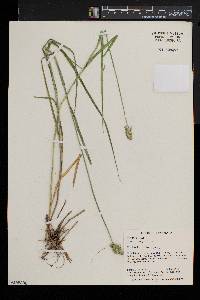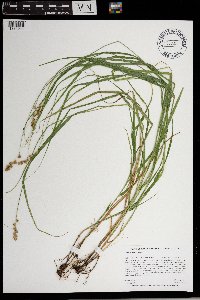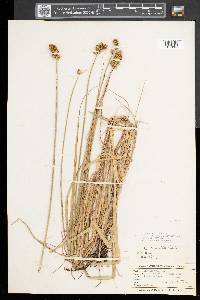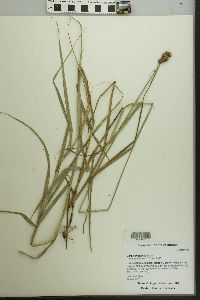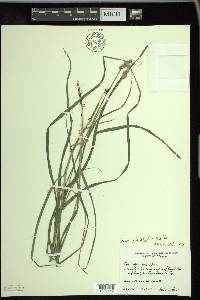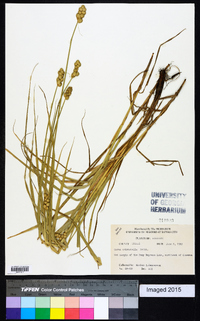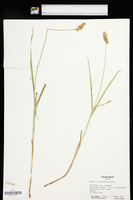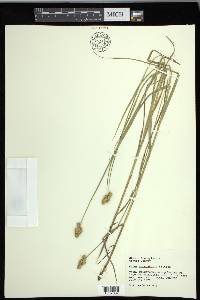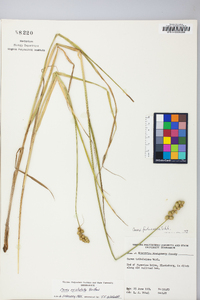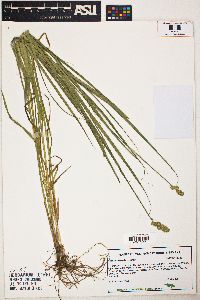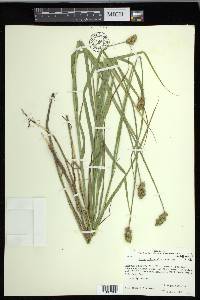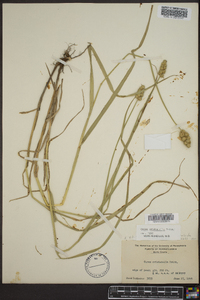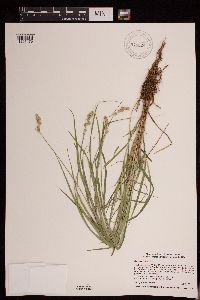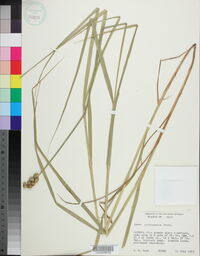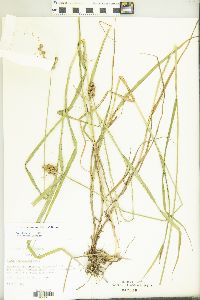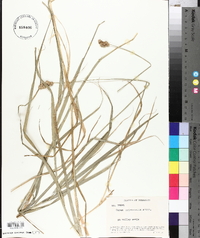Carex cristatella
|
|
|
|
Family: Cyperaceae
Crested Sedge
[Carex cristatella var. catelliformis, moreCarex lagopodioides var. cristata (Tuck.) J.Carey, Carex tribuloides var. cristata L.H. Bailey] |
Plants densely cespitose. Culms 30-100 cm; vegetative culms with numerous leaves spaced evenly along distal 1/2. Leaves: sheaths adaxially green-veined nearly to collar, with V-shaped hyaline band extending 4-20 mm proximal to collar; somewhat loose, expanded near summit, ± wing-angled, adaxially firm, summits truncate to U-shaped, prolonged beyond collar; distal ligules 4-10 mm; blades 4-6 per fertile culm, 13-40 cm × 3-7.5 mm. Inflorescences dense or proximally open, brown, 2-4(-4.5) cm × 8-15 mm; proximal internode 2-6 mm; 2d internode 2-4 mm; proximal bracts scalelike with bristle tip to 1(-8) cm. Spikes 6-15, usually widely spaced, globose, 4-8 × 4-8 mm, base rounded to tapered, apex rounded. Pistillate scales white-hyaline or pale brown with green to brown midstripe not reaching tip, lanceolate, 1.6-2.3 mm, 1/2 length of and narrower than perigynia, hidden by perignyium beaks, apex acute or ultimate apex often rounded to retuse. Perigynia spreading to ascending, with beak and distal body of perigynium spreading or recurrent at 80º angle or greater, pale green to pale brown, conspicuously 3-6-veined abaxially, conspicuously 2-6-veined adaxially, ovate to elliptic, plano-convex, 2-3.5 times as long as wide, 2.7-4 × 1-1.7 mm, 0.3-0.4 mm thick, margin flat, including wing 0.1-0.2 mm wide, abruptly narrowed proximally, not extending to base; beak tip usually not colored, flat, ciliate-serrulate, distance from beak tip to achene 1.5-1.8 mm. Achenes oblong-ovate, 1.2-1.5 × 0.6-0.8 mm, 0.3-0.4 mm thick. 2n = 70. Fruiting summer. Moist to wet meadows, marshes, thickets, stream banks, ditches; 20-400 m; Man., Ont., Que., Sask.; Conn., Del., D.C., Ill., Ind., Iowa, Kans., Ky., Mass., Mich., Minn., Mo., Nebr., N.H., N.J., N.Y., N.C., N.Dak., Ohio, Pa., S.Dak., Vt., Va., W.Va., Wis.; Europe (introduced). When mature, Carex cristatella is readily distinguished from most other species of sect. Ovales by the widely spreading perigynia and the globose spikes, but immature specimens are frequently mistaken for other species, especially C. bebbii.
Stout, tufted, aphyllopodic, 4-9 dm; main lvs 3-7 mm wide, shorter than or equaling the stems; sheaths ventrally green-veined almost to the summit; spikes 6-12, gynaecandrous, 5-8 mm long and thick, subglobose or short-ovoid, sessile, densely crowded in an ovoid cluster 2-4 cm; lowest bract setaceous-prolonged but shorter than the infl; pistillate scales lanceolate, much shorter than the perigynia, hyaline with a green midnerve, merely acute; perigynia greenish-stramineous to pale brown, spreading or slightly recurved, oblong, 2.4-3.9 mm, 2-3 times as long as wide, distended over the achene, the wing usually broadest above the achene and tapering gradually to the base, finely nerved on both sides, gradually tapering to the beak; achene lenticular, 1.5 נ0.5 mm; 2n=70. Open swamps, wet meadows, and shores; N.H. and w. Que. to Va., w. to N.D., Neb., and e. Kans. (C. cristata, a preoccupied name) Gleason, Henry A. & Cronquist, Arthur J. 1991. Manual of vascular plants of northeastern United States and adjacent Canada. lxxv + 910 pp. ©The New York Botanical Garden. All rights reserved. Used by permission. From Flora of Indiana (1940) by Charles C. Deam Common in low open woods, swamps, marshes, and roadside ditches and on flood plains and banks of streams. Rare in the unglaciated area. ...... Indiana Coefficient of Conservatism: C = 3 Wetland Indicator Status: FACW |

